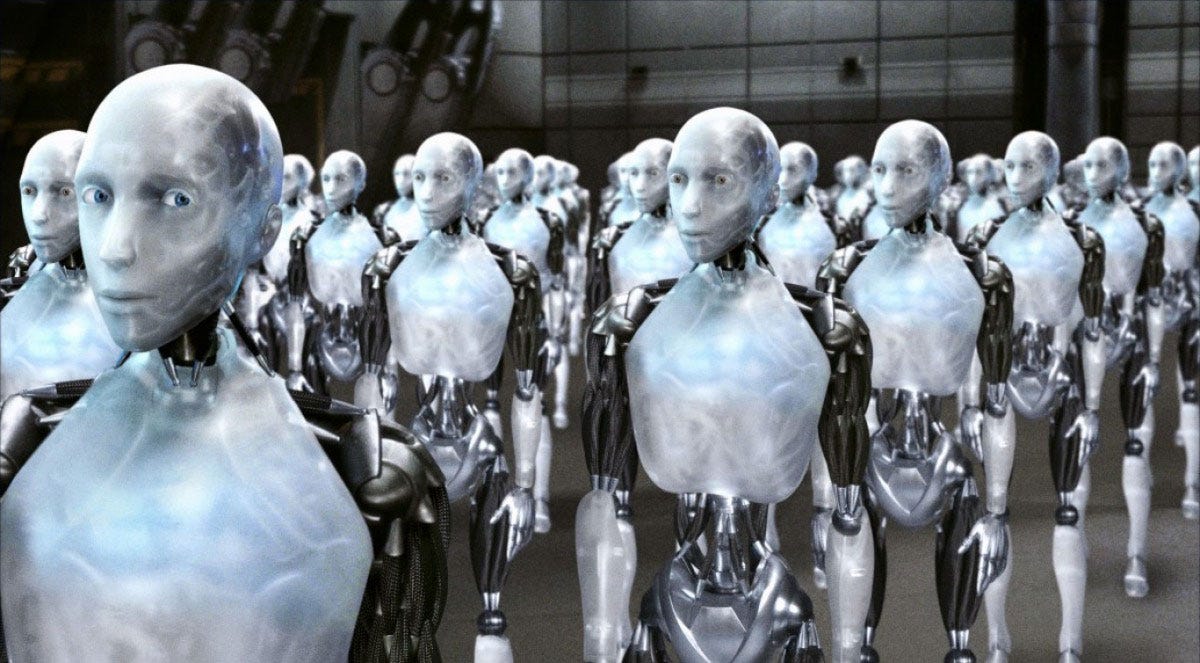Uncreative destruction
Virtual sex partners and robot insurrections? The damage caused by AI may be much more banal.
I originally associated the phrase “creative destruction” with Joseph Schumpeter, but it actually has its origins in Karl Marx. In the latter’s work, it referred to the ingrained tendency of capitalism towards crisis (“In these crises,” write Marx and Engels in The Communist Manifesto, “a great part not only of existing production, but also of previously created productive forces, are periodically destroyed.”)
The former, for his part, was an Austrian economist in the sense of both background and outlook. In the seismic disruptions that typically accompany capitalism’s great transformations, Schumpeter saw an underlying dynamism at work beneath the chaos. Creative disruption, in the Schumpeterian sense, thus implies tumult but equally calls to mind grandness and innovation. To wit: through market competition, new technologies, new productive methods and so on, capitalism might have a destructive effect on what already exists. It may destroy jobs or force factories to close. It may bring even the biggest corporate leviathans to their knees and eliminate the livelihoods they once sustained. The telos of this process, however, is ultimately progressive, even promethean.
Something like this belief, it seems to me, has underwritten much of the techno-utopianism so in vogue throughout the last few decades. Unsurprisingly, it’s been especially ubiquitous in much of the mainstream discourse surrounding AI, and a major talking point among its biggest boosters. Which is to say: none of the tech oligarchs who are currently promoting AI technology are even trying to pretend its impact will be gentle or gradual. If anything, most are positively effusive about how quickly it will render everything else — right down to people themselves — obsolete throughout a host of vital industries and in the arts.
Even AI pessimists, I think, have tended to embrace a version of the same logic, albeit without the inane techno-positivity attached. In thinking about what AI is going to do to our society, the reigning instinct is to conjure the most dystopian scenarios imaginable. Once perfected, will AI-generated deepfakes accelerate the crisis of misinformation? Will self-driving cars decide they want to kill us? Will AI destroy sex and romance? Will our Macbooks suddenly start talking like HAL 9000 from 2001?
I suppose it’s too early to preclude any possibility outright. But some recent data on the effect AI is already having on the basic fabric of digital life raises an alternative (if no less potentially destructive) possibility. Writing for The Hub, Rudyard Griffiths recently detailed his losing battle with AI overviews — i.e. those things that now pop up on search engines every time you use them, even if you aren’t framing your searches in the form of a question. Noting how quickly these have changed his own habits, Griffiths goes on to cite some truly gobsmacking recent statistics:
According to recent studies, AI summaries have reduced website traffic by 30 to 70 percent, depending on the search term. Even more mind-blowing, upwards of 60 percent of all Google searches are now termed “zero-click,” or the user never leaves the Search Engine Results Page (SERP).



